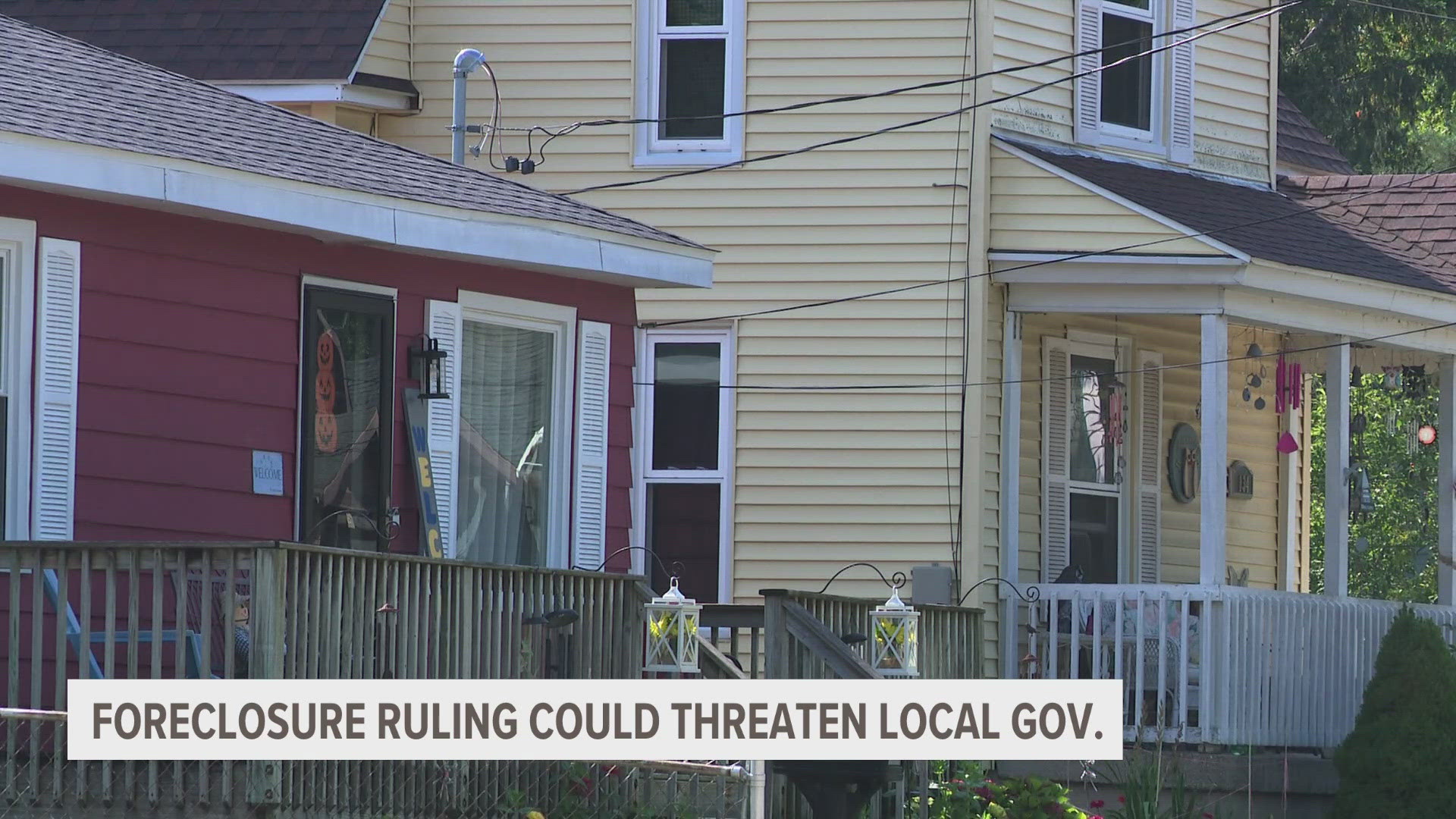GRAND RAPIDS, Mich. — The state Supreme Court decided that surplus funds from auctioned foreclosed homes since 2014 must be returned to the homeowner if claimed, opening the floodgates on potential thousands of dollars' worth in reimbursements.
The court is applying its 2020 decision retroactively—disallowing local government organizations from withholding surplus profits from the auction of foreclosed homes.
Before that decision, for example, if a homeowner owed $1,000 in taxes leading to the foreclosure of their home, local governments who auctioned the home for $20,000 were able to keep all $19,000 in surplus profit, leaving the homeowner with nothing.
Following the 2020 decision, claims made within two years of the foreclosure would have surplus funds reversed.
Now, foreclosures occurring before the 2020 ruling within the six-year statute of limitations are viable for claims as well if filed in a "reasonable time" of Sunday's decision—meaning if someone's home was foreclosed and auctioned off to a surplus of what was owed back in 2014 and the homeowner filed a claim today, the local government is required to pay out the difference to the homeowner.
Laura Bartel, a professor of law at Wayne State University, said the decision comes at a risk to local governments across the state.
"The problem is that the local governments have spent the money," Bartel said. "They take in money from tax foreclosures that becomes part of their budgeting process, and they spend it."
"They potentially have several years of disgorgement to make of monies that they no longer have," Bartel said.
The risk, according to Bartel, is a local government required to come up with thousands of dollars they may not have in order to be in line with the state's constitution.
"How do municipalities balance their budgets? They either increase taxes or they cut services, and they're going to have to do one or the other to come up with this money," Bartel said.
In his explanation of the ruling, Justice Brian Zahra said the court is "not without sympathy" to local governments faced with large reimbursements.
"Nonetheless, while the problem originated with the Legislature," Zahra said, "at the foundation of our government is the precept that no state officer or local government can justify a constitutional violation on the basis of a statutory directive."
Bartel said that county treasurers faced with mandated refunds are not in a good position.
"It may not have the catastrophic effect that that that the tax authorities are worried about, but you know, you only need one house that was sold for $2.3 million when they owed $150,000 in taxes and that's a lot of money, just that one house," Bartel said.
"I would not be a happy camper, let me tell you that," Bartel added. "Obviously no one wants to do either of those two options, raising taxes or cutting services, and they're going to have no choice."
As a part of the Supreme Court's ruling, only those who apply for a claim in a "reasonable time" are able to cash in. Bartel said it could mean many do not apply for reimbursement.
"We'll have to see how many people actually make a claim, and how much money is involved in those claims," Bartel said. "That's the maximum exposure is every foreclosure that took place within the six years before the July 2020 Supreme Court decision."
13 ON YOUR SIDE reached out to several county treasurers on how Sunday's ruling could impact county funding. Stephan Currie, executive director of the Michigan Association of Counties, responded with the following statement:
"Counties adhered to the law until the previous foreclosure statute was found unconstitutional, but now these counties face significant financial penalties. The cost of retroactive liability across the state remains unknown at this time," Currie said. "The Michigan Association of Counties will collaborate with the Legislature and other interested parties to seek financial assistance from the state to address these obligations on our 83 member counties."
County treasurers also told 13 ON YOUR SIDE that ongoing litigation regarding the ruling with general uncertainty is leaving counties with little information to suggest how a county will be impacted.

